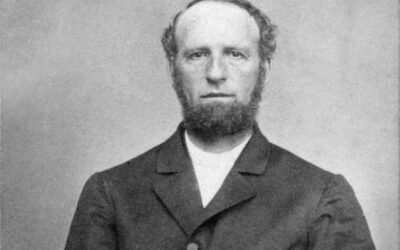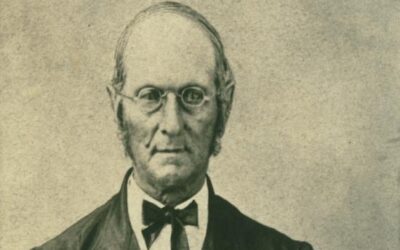The Bible is full of beautiful promises that can comfort us in a variety of situations. They can give us hope when we are hopeless, make us feel grateful for God’s love, and comfort us when we’re grieving or suffering.
God’s Word is especially useful for times of worry, or when you have an anxious heart. And there are so many Bible verses in Scripture that talk about exactly that! It’s one of the most significant side effects of sin.
So if you’ve ever felt fearful about the future, your health (or that of a loved one), making a difficult decision…and the endless list of things that can cause us to worry, we’ll highlight some promises in the Bible that can assure you of our Heavenly Father’s care and protection, no matter the circumstances.
Specifically, we’ll talk about promises for when these 7 common circumstances cause us to worry:
- Basic necessities, like food and clothing
- The future
- Health for yourself or a loved one
- Safety
- Suffering
- Facing a difficult task or decision
- Guilt and shame
Let’s explore the Word of God together and discover how to depend on the Lord for all our worries.
1.Basic necessities
Paul says that “God shall supply all your need[s] according to His riches in glory by Christ Jesus” (Philippians 4:19, NKJV).
And to demonstrate this, Jesus pointed us to observe how He takes care of His creation.
In His famous Sermon on the Mount, Jesus spends a significant amount of time talking about not worrying. He highlights a few necessities specifically: food and clothing.
Let’s look at promises about both of these basic needs.
Having enough to eat
Concerning food, He pointed us to God’s care for birds, saying:
“Look at the birds of the air, for they neither sow nor reap nor gather into barns; yet your heavenly Father feeds them. Are you not of more value than they?” (Matthew 6:26, NKJV).
He concluded by asking a very sobering question:
“And which of you by being anxious can add a single hour to his span of life?” (Matthew 6:27, ESV).
You and I know the answer, right?
Instead of worrying, we’d be much better off trusting God.
Having clothes to cover us

Photo by Sarah Brown on Unsplash
About clothing, Jesus Himself asked, “So why do you worry about clothing?” (Matthew 6: 28, NKJV).
And to show us why we don’t need to worry about this, He pointed us to His care for flowers, saying:
“Consider the lilies of the field, how they grow: they neither toil nor spin; and yet I say to you that even Solomon in all his glory was not arrayed like one of these.
Now if God so clothes the grass of the field, which today is, and tomorrow is thrown into the oven, will He not much more clothe you, O you of little faith?” (Matthew 6:28-30, NKJV).
He asks us not to worry “saying, ‘What shall we eat?’ or ‘What shall we drink?’ or ‘What shall we wear?’” (Matthew 6:31, NKJV).
In fact, He takes it deeper when He says: “Do not be anxious about your life, what you will eat or what will drink, nor about your body, what you will put on” (Matthew 6:25, ESV).
He then puts our worries into proper perspective when He asks, “Isn’t life more than food and the body more than clothing?” (Luke 12:30, ESV).
He says that you don’t have to worry because “your Father knows that you need them” (Matthew 6:32, NKJV).
But He tells us what our one priority should be. The one thing that He is looking for in us in order to supply all our needs. He says:
“But seek first the kingdom of God and His righteousness, and all these things shall be added to you” (Matthew 6:33, NKJV).
When we do this, the peace of Christ will grow in our hearts.
2. When worried about the future
This is definitely a relatable worry. Most of us, at one point or another, have worried about the future and thought about all of the “what-ifs.” But, we can’t see the future, and we can’t control the future. Which ultimately makes this kind of worrying futile.
What does the Bible say?
Well, the Bible tells us again and again that when we depend on God, He will guide our futures.
In fact, Solomon, whom God gave the gift of wisdom to, reminds us:
“Trust in the Lord with all your heart, and do not lean on your own understanding. In all your ways acknowledge Him, and He will make straight your paths” (Proverbs 3:5-6, ESV).
If we trust in God instead of trying to control the future, we can feel confident that the Holy Spirit will guide us.
This topic comes up again when Jesus is preaching the Sermon on the Mount.
He saw our tendency to crowd our lives with thoughts of what the future will bring. So He told us:
“Therefore do not worry about tomorrow, for tomorrow will worry about its own things. Sufficient for the day is its own trouble” (Matthew 6:26-34, NKJV).
With God by our side, we can trust Him with the future and “be strong and courageous” no matter what (Joshua 1:6, ESV).
3. When worried about your health
Health is something we tend to take for granted when we have it, and sorely miss when we don’t.
God, Himself, gave specific laws to the children of Israel that had to do with everything about their lives. They even included practices which promoted a very healthy lifestyle.
But we live in a sinful world, and even if someone does everything they can to be healthy, they may still experience poor health or serious illness.
Yet, the Bible gives us hope both for this life and the life to come.
The Psalmist also wrote that God will deliver the righteous “from the perilous pestilence (disease).” That no “plague (diseases) [shall] come near your dwelling.” And He will satisfy you “with long life” (Psalm 91:3,10; Psalm 91:16, NKJV).
God also promises to carry our burdens for us, which can give us mental strength during times of illness:
“Cast your burden on the Lord, and He will sustain you” (Psalm 55:22, ESV).
4. When worried about your safety
 To show just how much Jesus watches to ensure we are kept safe, He pointed to God’s watch-care for sparrows.
To show just how much Jesus watches to ensure we are kept safe, He pointed to God’s watch-care for sparrows.
“Are not two sparrows sold for a penny? And not one of them will fall to the ground apart from your Father. But even the hairs of your head are all numbered. Fear not, therefore; you are of more value than many sparrows” (Matthew 10:29-31, ESV).
In Psalm 91, God also promises to be your shield and buckler. To be your refuge and fortress. That “He shall give His angels charge over you, to keep you in all your ways” (Psalm 91:11, NKJV).
And even though “a thousand may fall at your side, and ten thousand at your right hand,” He will not allow evil to “come near you” (Psalm 91:7, NKJV).
Another one of the Psalms, Psalm 23, also expresses how God will protect us:
“Even though I walk through the valley of the shadow of death, I will fear no evil, for you are with me” (Psalm 23:4, ESV).
In Psalm 27, 56, 46, 94, and 121, we are reassured that even if we do face danger, humans cannot take away our eternal salvation:
“The Lord is my light and my salvation; whom shall I fear? The Lord is the stronghold of my life; of whom shall I be afraid? (Psalm 27:1, ESV).
“In God, whose word I praise, in God I trust; I shall not be afraid. What can flesh do to me?” (Psalm 56:4, ESV).
“God is our refuge and strength, a very present help in trouble. Therefore we will not fear though the earth gives way, though the mountains be moved into the heart of the sea, though its waters roar and foam, though the mountains tremble at its swelling” (Psalm 46:1-3, ESV).
“When I thought, ‘my foot slips,’ Your steadfast love, O Lord, held me up. When the cares of my heart are many, Your consolations cheer my soul” (Psalm 94:18-19, ESV).
“The Lord will keep your going out and your coming in from this time forth and forevermore” (Psalm 121:8, ESV).
So, every time you start worrying about your safety, turn to the book of Psalms!
You’ll find very precious promises of God’s watch and care for the righteous.
5. When you’re afraid of suffering or pain
As human beings in a sinful world, we are bound to experience suffering or see someone we love suffer.
And it hurts. It just hurts.
And seeing that this could be one more thing that can worry us as we anticipate it, Jesus left us a promise for it, too. He said:
“I have told you these things so that in Me you may have peace. You will have suffering in this world. Be courageous! I have conquered the world” (John 16:33, CSB).
The apostle Paul took this promise seriously, and it worked for him.
In his suffering, he prayed to God and asked Him to remove it. God’s response to him was, “My grace is sufficient for you, for My strength is made perfect in weakness” (2 Corinthians 12:9-10, NKJV).
So, with God’s help, he dealt with his anxieties about his difficult situation until he could say:
“Therefore most gladly I will rather boast in my infirmities, that the power of Christ may rest upon me. Therefore I take pleasure in infirmities, in reproaches, in needs, in persecutions, in distresses, for Christ’s sake. For when I am weak, then I am strong” (2 Corinthians 12:9-10, NKJV).
And through prayer and trust in God, you, too, can have such strength even in the hardest situations.
6. When faced with a difficult task or decision

Photo by Helena Lopes on Unsplash
At times, we are faced with big decisions—times when there’s so much at stake that we fear making the wrong decision, or not choosing the best option.
This could be a decision on a business deal. One that either means big profits for your company or bankruptcy.
Or you may be required to take on a responsibility that you feel unprepared for. Like becoming a new parent. Or taking on a demanding job, or having to care for a disabled spouse after an accident, or deciding whether or not to let your teenager do a/b/c/d…
In times like these, God says:
Do not fear, for I am with you; do not be afraid, for I am your God. I will strengthen you; I will help you; I will hold on to you with My righteous right hand (Isaiah 41:10, CSB).
And this is not the only place that God tells us not to fear.
Depending on what Bible translation you use, there are so many times in the Bible when God tells us “Do not fear” or “Do not be afraid.”
This tells you that there’s no need to fear because God’s got your back!
In Psalm 34, David writes that God delivered him from his fears, and He will do the same for you if you trust Him completely.
7. When harassed by guilt and shame
You may be worried that God will not accept you because of your past. Or maybe you worry that your past will make you unacceptable to anyone else you befriend.
Maybe you have gone through all these promises in this post, and thought they don’t apply to you because of things you have done. It could be you’ve made mistakes that you have regrets about.
Whether only you know about them or the whole world knows about it, know that God knows, too. And the good news is that He doesn’t want you to keep worrying over whether or not He accepts you.
All He wants you to do is come to Him as you are, confessing your sin to Him in repentance. A good example of such repentance is found in Psalm 51.
And His promise to you is:
“I, even I, am the one who wipes out your transgressions for My own sake; And I will not remember your sins” (Isaiah 43:25, NASB).
And whenever you find yourself doubting His forgiveness and acceptance, hear Him saying to you:
“Let not your heart be troubled; you believe in God, believe also in Me” (John 14:1, NKJV).
Believe Him when He tells you that all these promises can be yours, too, if you trust Him. Trust Him as the one who has your best interest at heart. The one who has you under His constant watch care because you are His.
The peace of God can be in your heart:
“And let the peace of Christ rule in your heart” (Colossians 3:15, ESV).
He is the one who tells you, “Fear not, for I have redeemed you; I have called you by your name; You are Mine” (Isaiah 43:1, NKJV).
And as you go on to live your life fearless and worry free, always remember Jesus Christ sends you out each day saying:
“Peace I leave with you. My peace I give to you. I do not give to you as the world gives. Don’t let your heart be troubled or fearful” (John 14:27, CSB).
Use some of these verses and claim the promises of God in your next devotional time and find peace and rest for your soul.
Want to learn more about how you can have peace in your life through Jesus? Read this page next: 12 practical ways to overcome fear and worry!
Choose an Online Bible Study
Want to keep learning? Find out more about Jesus, humanity, the plan of salvation, and how God loves you enough to sacrifice everything, just to give you a chance to choose Him.
Sometimes it can be hard to know where to start, that’s why we offer free, user-friendly, online Bible study options you can do anytime, anywhere, and at your own pace.
This online Bible school will take you through the major themes of Scripture, breaking down the Bible’s complex concepts into bite-sized pieces, which can lead you toward the answers of life’s more challenging questions.
More Answers
Who Was James Springer White?
James White, a formidable co-founder of the Adventist Church, worked with his wife, Ellen White, to support, guide, and encourage this new body of believers.
Seventh-day Adventist Founders
The key figures and founders of Seventh-day Adventism were a group of people from various Protestant Christian denominations who were committed to studying the Word of God and sharing about Jesus Christ.
What to Expect When You Go to an Adventist Church
If you’re attending an Adventist church for the first time, you may wonder what it’s really like. While each Adventist church is unique in its collective personality and local culture, Adventist church services are generally similar to most other Protestant church services.
Adventist Education
Seventh-day Adventists have historically upheld the importance of a well-rounded, high-quality education. Instead of a one-size-fits-all approach to teaching and learning, the Adventist Education system operates on the principle of educating the “whole” person.
Evangelism
Evangelism is simply sharing the truths of the Bible with someone else. And Adventists are all into it.
Joseph Bates
Joseph Bates was a sailor-turned-preacher who joined the Millerite Movement and waited for the Second Advent of Jesus to happen in 1844. Despite being disappointed when this didn’t occur, Bates held onto his faith and played an integral part in starting the Seventh-day Adventist Church.
Everything You Need to Know About an Adventist Church Potluck
Every so often, usually on a schedule ranging from once a week to once a month to once a quarter, an Adventist church will have “fellowship dinners,” often casually referred to as potlucks.
The Seventh-day Adventist Hymnal
The Seventh-day Adventist Hymnal is a songbook used worldwide by many Adventist congregations during their worship services. Since its publication in 1985, it has helped foster praise to God while reminding church members of our mission and drawing them closer to Jesus.
Everything You Need to Know about Sabbath School
Sabbath School is the Bible study component of the church program at most Seventh-day Adventist Churches. It’s a time of Bible study on a specific topic or lesson. Instead of listening to a preacher, people interact with one another, making it a great opportunity for building friendships.
What Are Seventh-Day Adventist Sermons Like?
In nearly every Seventh-day Adventist Church, the sermon is the focal point of the main service—similar to many Protestant Christian denominations. It is a time of biblical instruction by the pastor, who shares what they’ve been studying in the Bible and preparing over the previous week.
What is the Great Disappointment and What Can We Learn From It?
The Millerites predicted Christ’s return on October 22, 1844, but Jesus never arrived. Another event took place. Discover what really happened and what the Great Disappointment can teach us today.
Ellen White and the Sabbath
The Sabbath is an important topic in the Seventh-day Adventist Church. It shouldn’t surprise you, then, that Ellen G. White, a co-founder of the church, studied the Bible’s teachings on the Sabbath and wrote large amounts about it.
Ellen White and the Great Controversy
The Great Controversy is a book written by Ellen G. White, a co-founder of the Seventh-day Adventist Church. Written in the late 1800s, the book is the last in a series and describes the connection between Bible prophecy and post-biblical history. It also discusses factors that will characterize last-day events.
Who Were the Judges of Israel in the Old Testament?
Times of crisis call for men and women of action. The Israelites, newly settled in the Promised Land, found themselves in those times. As enemy nations attacked and oppressed the tribes, they cried out to God for help. He, in turn, sent them men and women of action—known as judges.
Ellen White’s Visions and Prophecies
The New Testament upholds prophecy as a spiritual gift that will continue to the end of time (Ephesians 4:11–14). Seventh-day Adventists believe that Ellen G. White (1827–1915), a humble woman of God and an earnest student of the Bible, demonstrated this gift of the Holy Spirit through visions and prophecies that she received.
The Armor of God as Described in Ephesians
In Ephesians 6, the Apostle Paul was helping people understand what it means to defend themselves within a spiritual war (Ephesians 6:10-18).
Why is the Sabbath Observed from Sunset to Sunset?
If you know of any Adventists, you may have noticed that they stop their work or business activities before sundown on Friday. What’s the reason behind this?
What is the New Testament? [About Each Book and Key Lessons]
The New Testament is the second section of the Bible, describing Jesus and how He came to this world to reveal the love of God. It tells about His ministry, His death and resurrection, and the church that resulted.
The Millerite Movement
William Miller’s Bible study led people to await Jesus’ Second Coming in 1844. This movement became known as the Millerite Movement and led to the Seventh-day Adventist Church.
How Did Ellen G. White Help Found the Adventist Church?
Ellen G. White, a humble woman from Gorham, Maine, was a co-founder of the Seventh-day Adventist Church and a key leader in it from its very beginning. Following the Holy Spirit’s guidance at a young age, she dedicated herself to studying Scripture and became involved in the Advent Movement.
Healing in the Bible
Have you ever felt like healing seemed so far away? Like it wouldn’t be possible for you? What you most want is a glimmer of hope or a bit of encouragement.
All about the prophets in the Bible
Prophets were individuals in the Bible who received messages from God and communicated those messages to the recipients—whether through speaking or writing. Their writings, known as prophetic books, comprise a huge part of the Bible.
What the Bible Says About Tattoos (Are They a Sin?)
Only one Bible verse speaks directly to permanent, symbolic markings on the skin. It’s Leviticus 19:28, and it’s one item in a list of ways God told Israel to distance themselves from the pagan practices of the people they lived among.
Who Are Adventists
The Seventh-day Adventist Church—“Adventists” for short—is a Christian denomination of ordinary people who seek to follow Jesus and live out His mission in this world. Established in 1863, we hold to the Protestant principle of sola scriptura, which means the Bible guides everything we do.
Life Lessons from Joseph in the Bible
Joseph is one of the more well-known people from the Bible’s Old Testament. He showed remarkable strength, faith, and patience—even while facing great difficulty and injustice. All because he let God lead.
Didn’t find your answer? Ask us!
We understand your concern of having questions but not knowing who to ask—we’ve felt it ourselves. When you’re ready to learn more about Adventists, send us a question! We know a thing or two about Adventists.






















![What is the New Testament? [About Each Book and Key Lessons]](https://www.askanadventistfriend.com/wp-content/uploads/2022/02/new-testament-400x250.jpg)







